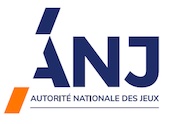The illegal gambling market in France could be worth as much as €1.5bn according to a new study commissioned by the country’s gambling regulator.

Pricewaterhouse Cooper’s research between January and March 2023 found that the gross gaming revenue of France’s black market totals at least €748m.
L’Autorite National des Jeux, France’s gambling regulator, said the black market therefore accounts for a minimum of five per cent of the industry's total bets – but a maximum of 11 per cent.
The PwC findings have also revealed that of the 510 identified illegal websites generating traffic on French soil, 60 per cent of the traffic came from only 21 websites.
What’s more, 50 per cent of the illegal websites whose operators have been identified are owned by companies registered in Curaçao.
And 79 per cent of the GGR generated by the illegal gambling market comes from high-risk gamblers, the study found.
One in two unaware of black market
The PwC research revealed that online casino games such as slots, roulette and blackjack accounted for 50 per cent of the illegal gambling traffic
But while around three million people are estimated to have played on illegal sites at least once a month in 2023, one in two consumers are unaware the content they are playing is of an illegal nature.
However, 35 per cent of players using illegal sites do so via a VPN, the research added.
Linked to this, the study found that the absence of wagering limits or identity checks was a motivation for using illegal sites as well as the expectation of higher winnings and a greater range of games being available.
Nineteen per cent of players using illegal sites – the highest proportion – said they first heard about the illicit offerings via search engines, with online advertising (18 per cent) and social networks (18 per cent) following behind on that metric.
ANJ vows tough action
In response to the revelations, the ANJ said it plans to make “targeted reports” to the relevant authorities so that “criminal proceedings can be brought against those registered in Curaçao or Cyprus who run these sites, which currently operate with complete impunity and which the ANJ itself is unable to punish.”
The regulator will also warn publishers of illegal gaming software and companies offering hosting solutions for illegal sites, while also taking action against payment service providers that facilitate illegal gambling activity.
Raising public awareness of the dangers of illegal gambling is another top priority for the ANJ alongside enhancing communications with the Gaming Regulators’ European Forum.

